How Much Cash Should I Have on Hand? What Experts Say to Keep at Home
Inside: This guide will help you determine the answer to how much cash should I have on hand. Plus tips on how to store it safely so you’ll always have what you need.
Having cash on hand is important. You want to be prepared for the unexpected.
While we live in a digital society, there are times when you will need cash.
Just in case you need $20 when your wallet gets stolen at the grocery store. Or the power is out and the store is unable to process digital payment methods.
You never know when it will happen. But, you should always be prepared.
In fact, only 37% of people have one month of income saved up for emergencies (source).
In today’s post, we will dive into how much cash should I have on hand as well as how to store the cash, too.
You don’t want to be carrying $500+ in your wallet at all times. Maybe just $20-40 at a time in a wallet with the rest in a safe place at home.
Now, let’s determine how much cash should you keep on hand based on these expert tips!

How much cash should I be holding?
There is no definitive answer to the question of how much cash people should be holding, as it depends on a number of individual factors.
However, experts generally agree that it is important to have at least a couple hundred dollars of cash on hand to cover unexpected costs.
This amount of cash on hand should be adjusted according to the current market conditions.
How much cash you should have on hand?
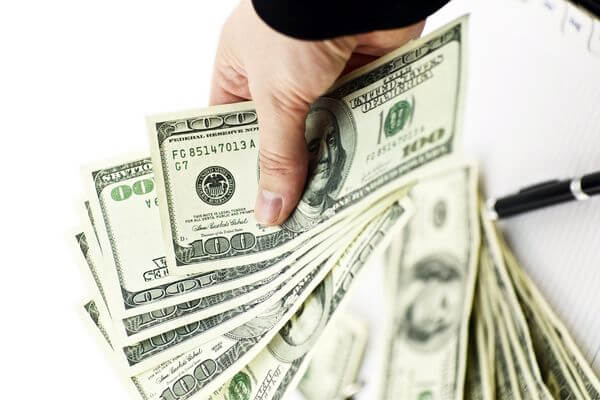
Most experts recommend that people have enough cash on hand to cover three to six months of expenses in case of an emergency.
This way, they will have the money they need to pay for basic necessities. It’s up to each person to decide how much cash they want to keep on hand. Some people may feel comfortable with less, while others may want to keep more cash on hand.
Either way, it’s always good to be prepared for unexpected events.
This post may contain affiliate links, which helps us to continue providing relevant content and we receive a small commission at no cost to you. As an Amazon Associate, I earn from qualifying purchases. Please read the full disclosure here.
What experts say about how much cash you should keep at home
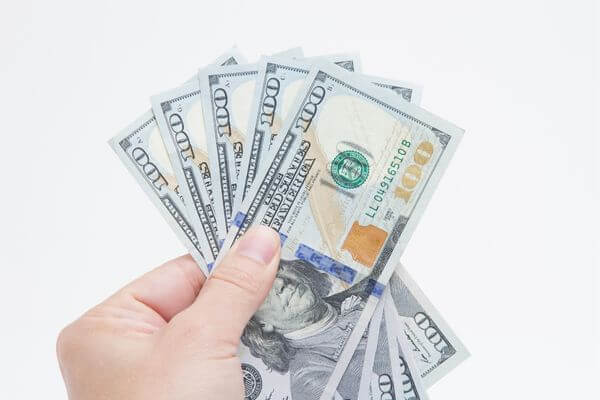
There are benefits of keeping cash at home.
You want to keep most of your cash in an online savings account with a small percentage in cash at home.
Remember, you are earning interest on cash in a bank account while cash at home is not earning money.
1. How much cash you should keep at home
Experts recommend keeping at least $1,000 in cash at home.
This way, you’ll have enough cash on hand to cover expenses in case of an emergency. It’s always better to err on the side of caution and have too much cash rather than too little.
Keep your cash in small denominations preferably in denominations of $20 or less to make. Then, it is less likely that your cash will be stolen.
2. Living Expenses will impact your cash on hand
Everyone has a different income and living expenses.
Thus, if you are a higher wage earner of over 80000 per year, you will want to keep more cash on hand than someone making $17 an hour.
3. Where to keep your cash
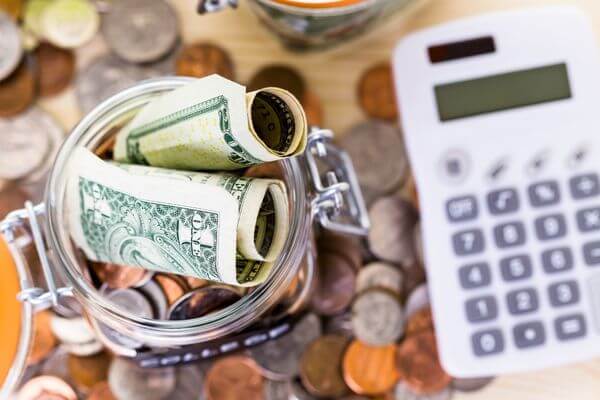
It’s important to have some cash available at home in case of an emergency.
Store your money in a safe and secure place, preferably in a fireproof safe. You want to keep it somewhere you can easily access it in case of an emergency.
Also, find a wallet that allows you to have a hidden slot to keep $20-50 for when you are on the go.
4. Why a Fireproof Safe is much Needed

The best place to keep your cash at home is in a fireproof and waterproof safe. This will protect your cash from burglars and from being damaged in a fire.
Keeping large denominations of cash at home is risky and is often not covered by insurance, so it’s important to have a variety of safety measures in place in case of emergency. The recommendation is to keep a safe amount of cash at home, in smaller denominations and if you choose larger bills can be stored in a compact fashion if they are kept in fewer quantities
Remember that stashing cash away in a quality safe is more secure than hiding it under the mattress or in a coffee container.
5. Tell a friend or family member where you keep your cash
My dad is the king for having a bunch of hiding places for cash. You will never know how much cash you will find in an empty can or jar.
You want to tell a trustworthy person where you keep your cash and how to access it.
As a safety measure since you never know what will happen, but you don’t want your hard-earned cash thrown out.
how much cash can you keep at home legally

In the United States, there is no limit to the amount of cash you can keep in your home.
Thus, you can keep an unlimited amount of cash, gold, and silver in your home, as long as it is properly secured.
However, there are limits to how much cash you can fly with.
Is it good to have a lot of cash on hand?

Most experts agree that you should have 3-6 months’ worth of cash on hand in case of emergencies or unexpected expenses.
This cash on hand is split between online saving accounts and keeping cash at home.
Cash can also help you fund short-term goals, prepare for major life milestones, and capitalize on opportunities like a career change.
However, holding too much cash can have negative consequences for your long-term finances since you are not earning money on your cash.
Your Emergency Fund vs Emergency Money
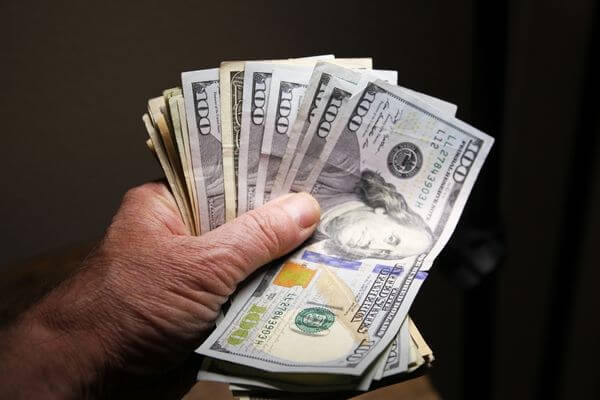
This is a very common question, one that many people will inevitably ask themselves at some point in their life. What amount of money should I have on hand? It’s an age-old debate that has been asked for decades.
These terms can get confusing, so let’s define them further:
- Emergency Fund = money to cover unexpected short-term expenses
- Rainy Day Fund = 3-6 months of expenses set aside for job loss, medical emergencies, or when life really throws you a curveball
- Emergency Money = cash on hand to cover you when traditional methods of payment are not available
Experts have weighed in and agree that you need to be prepared for all three scenarios and the amount you need to save for each is different as well as where you keep the money.
This is on our list of money rules.
Why should you have cash on hand?
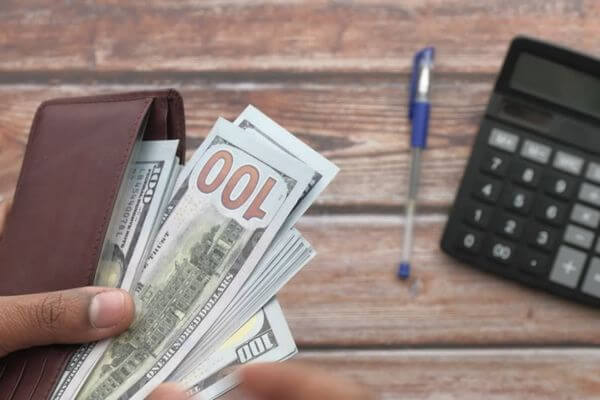
You should have cash on hand for emergencies and unexpected expenses. A lot of people stash away some money in their back pocket or keep it under the mattress at home, but that is not a smart way to do it.
Instead, you should have a bank or credit union account where you can keep your cash safe and secure. Even if that is not possible for you, experts recommend keeping extra money aside for these reasons.
Reason #1 – To cover unexpected expenses
Some unexpected expenses that can come up include car repairs, medical bills, and lost wages. You should have cash on hand to cover these expenses.
- An emergency fund should have a goal of at least $1,000 to cover unexpected expenses.
- A rainy day fund would consist of having at least three to six months’ worth of expenses.
Make sure you start building up your emergency fund as soon as possible and your rainy day fund gradually so you don’t shock yourself when an unexpected expense arises.
Reason #2 – To provide a safety net in case of job loss
It’s important to have cash on hand in case of job loss. $1,000 is a good start, but it is better to have at least one month of income set aside as a safety net in case of job loss.
An emergency fund can help during periods of financial stress when you are currently working or retired.
Learn do credit cards have routing numbers?
Reason #3 – To help you navigate periods of financial hardship
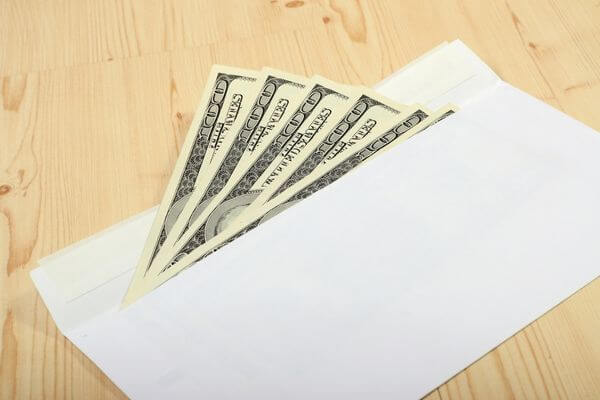
If you are facing financial hardship, having cash on hand can help you weather the storm.
You can use cash to cover short-term expenses, such as rent, car payments, and groceries. Having cash on hand gives you the flexibility to navigate difficult financial times.
Reason #4 – To take advantage of opportunities
You never know when a great opportunity is on the horizon and that is why having cash on hand can help you take advantage of them when they arise.
For example, it is important to have enough cash on hand during times of transition, such as when starting a business or investing in a new venture. Additionally, cash can be used to invest in long-term goals, such as saving for a down payment on a house or investing in stocks.
Having cash available allows you to make quick decisions and move quickly toward your goals.
the safest place to keep cash at home

You must keep cash safe is to store it in a fireproof safe or waterproof container.
The safe should be positioned somewhere hidden, and the combination or key should be secure. The safe should be fireproof and waterproof to protect the contents from damage.
Here are great top rated options for you:
- SentrySafe Fireproof and Waterproof Steel Home Safe with Digital Keypad Lock
- Amazon Basics Steel Security Safe with Programmable Electronic Keypad
- TIGERKING Security Home Safe
FAQs
Be Prepared for an Emergency Situation with Cash on Hand
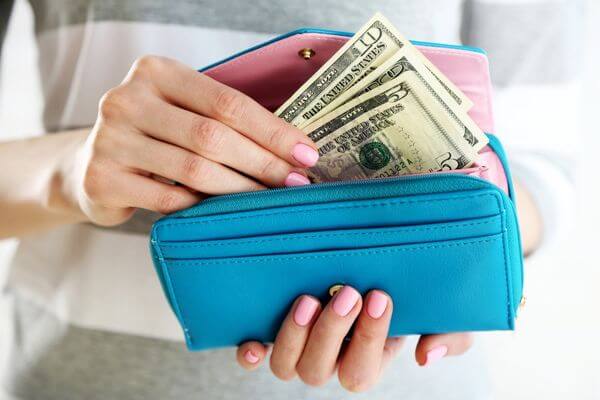
Cash is still an important part of our lives and economy, so it’s important to have some on hand at all times. How much you should keep on hand depends on your individual circumstances, but experts generally recommend having at least a few hundred dollars on hand at all times.
So how much cash should you keep on hand?
It really depends on your individual circumstances. However, most experts agree that having at least a few hundred dollars in cash is a good idea.
And, of course, it’s always important to store your cash safely so it doesn’t get lost or stolen.
Did the post resonate with you?
More importantly, did I answer the questions you have about this topic? Let me know in the comments if I can help in some other way!
Your comments are not just welcomed; they’re an integral part of our community. Let’s continue the conversation and explore how these ideas align with your journey towards Money Bliss.


